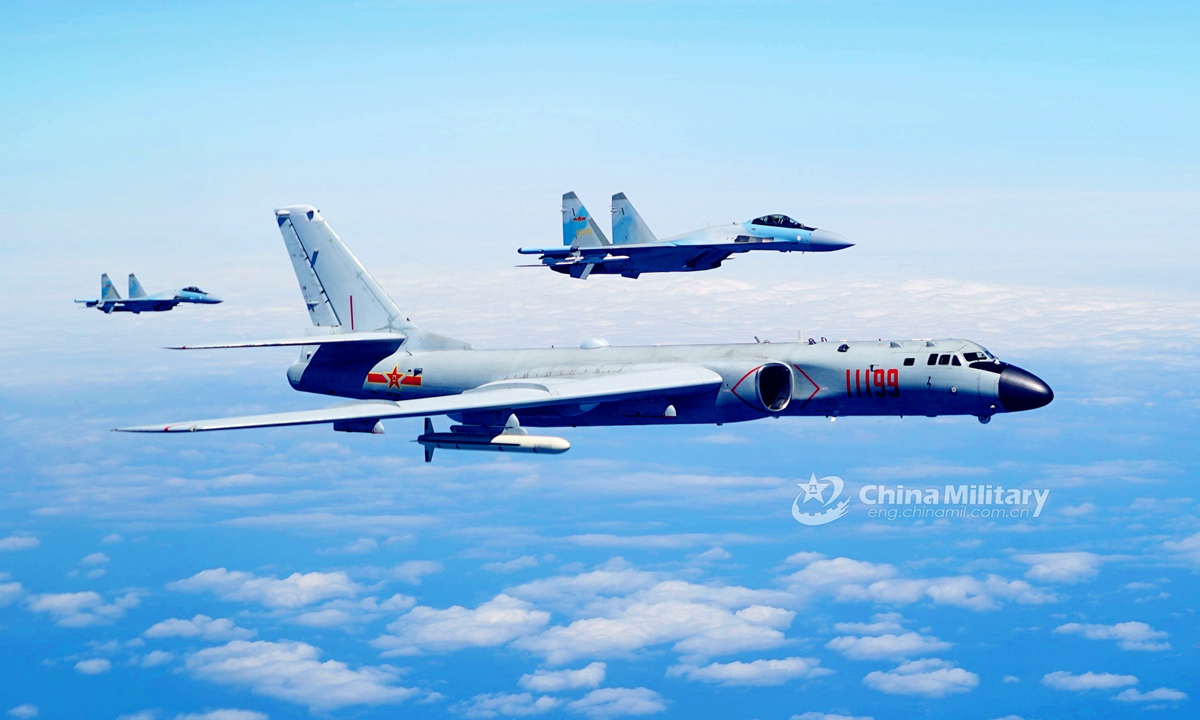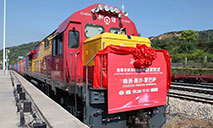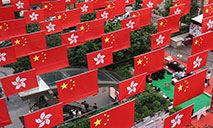US troops’ secret presence in Taiwan island ‘no real threat,’ but could ‘bring China’s reunification closer’

Two Su-35 fighter jets and a H-6K bomber fly in formation on May 11, 2018. The People's Liberation Army (PLA) air force conducted patrol training over China's island of Taiwan.File photo:China Military
Chinese Foreign Ministry vowed to take all necessary measures to safeguard the country's sovereignty and territorial integrity, and urged the US to fully recognize the high sensitivity of the Taiwan question, following US media reports that there were two dozen US troops deployed on the island of Taiwan, helping train local troops in secret.
Foreign Ministry spokesperson Zhao Lijian said Friday that the US should abide by the one-China principle and stop arms sales to Taiwan island and military contact with it so as not to seriously damage China-US relations and peace and stability across the Taiwan Straits.
"The one-China principle is the political foundation of China-US relations ... In the communiqué on the establishment of diplomatic relations between China and the US, the US clearly pledged to only maintain cultural, commercial and other unofficial ties with Taiwan," Zhao said.
The Wall Street Journal, citing unnamed US officials, reported on Thursday that a US special operations group and a contingent of Marines have been secretly operating in Taiwan to conduct training with Taiwan troops for at least one year.
Citing sources, Reuters also reported that a small group of US special operations forces have been rotating into Taiwan on a temporary basis to carry out training of local troops, predating the Biden administration.
Without specifically commenting on the issue, Pentagon spokesman John Supple said the US defense relationship with the island of Taiwan "remains aligned" against "threat" from the Chinese mainland, following the US' commitment to the one-China policy during talks between top Chinese and US diplomats in Switzerland.
Although the Pentagon showed a subtle attitude - neither confirming nor denying the reports - Chinese mainland experts said it could be true that US troops have been on the island of Taiwan and they believe there will likely be more military cooperation between the US and the secessionist authority of Taiwan, with a tendency to be "less secretive" in the future.
Experts from the island of Taiwan said the reports are bound to increase danger across the Taiwan Straits and increase the antipathy of peace-loving people, as the secessionist Democratic Progressive Party (DPP) gives its full cooperation to the US, which will use it as a pawn.
Yuan Zheng, deputy director of the Institute of American Studies at the Chinese Academy of Social Sciences, told the Global Times on Friday that sending troops to the island of Taiwan violates the US' commitment made when diplomatic relations with the Chinese mainland were established, as well as international law.
The US has made a clear commitment to China on the Taiwan question, Zhao said. "President Joe Biden made it clear during his phone conversation with Chinese President Xi Jinping that the US has no intention of changing the one-China policy."
US Secretary of the Navy Carlos Del Toro said on Wednesday that the US will continue to provide arms and technology for Taiwan to "defend itself." "It's our ultimate responsibility," he said.
The WSJ, which represents conservative voices, released the report to express dissatisfaction with the Biden administration, at a time when relations between the US and China are thawing, Yuan said.
The alleged military deployment can also be used as a tool to reassure Taiwan's DPP authority, experts said.
Both the US and Taiwan island were relatively secretive on the issue of military deployment and assistance, but now they have made it public, said Xin Qiang, deputy director of the Center for American Studies at Fudan University.
Xin, who regarded the US defense authority's attitude as confirming, told the Global Times that the mainland is bound to respond more forcefully and resolutely, but it remains unclear what responses it will make.
The mainland may look to review its policies on the matter, with old and new problems likely to be settled together if relations with the US deteriorate, Xin said.
"The US did not admit it (sending troops to Taiwan) publicly because it did not want to give Chinese mainland leverage … The US military has been helping train Taiwan soldiers for years. However, the Chinese mainland may be aware of it, with the situation well in hand," Xin said.
The expert said it is also likely to be the Biden administration's double-dealing strategy, to show a tough stance against Chinese mainland, and appease domestic opposition after the positive signal released from the dialogue between Yang Jiechi, China's top diplomat and US National Security Advisor Jake Sullivan.
'Is the PLA arriving?'
On Thursday, an unknown loud bang was heard in Changhua County on the Taiwan island. Many people said it sounded like a sonic boom of fighter jets, and asked on social media: "Was that noise made by fighter jets? Is the People's Liberation Army (PLA) arriving?"
In the past week, about 150 sorties were made by PLA aircraft, including J-16 fighter jets, H-6 bombers and Y-8 anti-submarine aircraft, entering Taiwan's self-proclaimed air defense identification zone, in response to the provocation by Taiwan secessionists.
Saying he was not particularly informed about military deployment in Taiwan, Ami Bera, a member of the US House Foreign Affairs Committee and chair of its Subcommittee on Asia, the Pacific, Central Asia and Nonproliferation, admitted that the US had special operators in Taiwan in the past, and there has been training and work done with them, US media reported.
"It is very possible for the US to send military personnel to assist training of Taiwan forces... They may do so by not wearing uniforms, and by suspending their military status, which can be resumed after they return to the US," Chang Ya-chung, a member of Taiwan's major opposition party, the KMT, and Sun Yat-sen School President in Taiwan, told the Global Times on Friday.
The US may send soldiers and technicians to help debug or repair equipment and train operators after an arms sale, experts said.
Chang, who won wide support in the recent KMT party leadership election with a message of peace and reunification, said his experience shows that people in Taiwan cherish peace and are not indifferent to reunification.
But the US sending military personnel to train Taiwan troops does not pose a real threat to the Chinese mainland… and it is more a test of the mainland's red line, through a salami-slicing approach, Chang said.
The head of Taiwan's defense authority Chiu Kuo-cheng on Wednesday predicted that the mainland is likely to mount a "full-scale invasion" by 2025, media reported.
The DPP has an ambivalent mindset: it wants the US to bring it on board, but it also fears the Chinese mainland will strike… but now it seems secessionists have no choice but to become a proxy of the US, Chang said.
Some analysts believe that Taiwan's DPP and the US will continue to collude and provoke the mainland, but this just brings reunification even closer. The mainland has no so-called reunification timetable for 2025, but reunification will be achieved with steel-like determination.
President Xi Jinping will attend an event on Saturday to mark the 110th anniversary of the Revolution of 1911, also known as the Xinhai Revolution, which ended more than 2,000 years of imperial rule in China and spread the ideas of democracy and equality among the Chinese people. It is expected that the reunification of Taiwan with the mainland will be mentioned.
Some experts said that aside from arms sales, future military cooperation between the DPP and the US may be strengthened, such as personnel training, equipment maintenance, and even the integration of combat systems, such as information, intelligence and command systems.
All US attempts to support Taiwan secessionists by arming and training soldiers will prove futile, Song Zhongping, a Chinese mainland military expert and TV commentator, told the Global Times on Friday.
"These special-operations forces training aims at operation which could possibly damage important ports and military installations so as to dull the PLA's movement… However, the PLA has a complete defense system of military facilities, which cannot be disrupted by a few special-operations units from Taiwan," Song said.
Photos
Related Stories
Copyright © 2021 People's Daily Online. All Rights Reserved.










